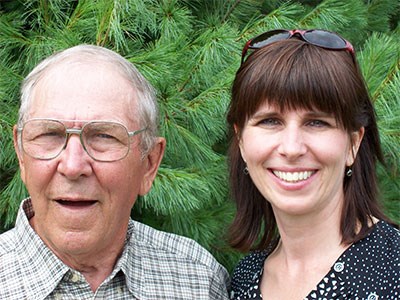On Oct. 3 and 4, Sudbury will host the second of two intake clinics for miners who believe their health has been negatively impacted by the inhalation of McIntyre Powder while working at Northern Ontario mines.
First introduced in 1943, McIntyre Powder was finely ground aluminum that miners working in Northern Ontario hard rock mines were required to inhale at the start of every shift before going underground, as it was thought to be a preventive measure against silicosis.
Research later disproved this theory and the practice was abandoned in 1979. But miners are experiencing a host of health issues that many believe could be attributed to the use of the powder.
The Sudbury clinic is open to any current and former miners who worked at a mine where inhaling McIntyre Powder was a condition of the job. Families of miners who are deceased are also welcome to register with the clinic on behalf of their loved ones.
The clinic will take place at Sudbury’s Steelworkers Hall on Brady Street, from 8 a.m. to 8 p.m. on both days.
Janice Martell, who has been researching McIntyre Powder since 2011, is encouraging those interested in participating to register ahead of the clinic, but walk-ins are welcome.
“You absolutely do not have to be pre-registered in order to go to the intake clinic,” Martell said. “I don’t want people to think they missed out if they don’t pre-register, but we are trying to get as many done as possible, because we’re expecting quite the influx, and it does help a lot.”
During the course of the two-day Timmins clinic in May, 60 people pre-registered, but 150 people in total participated in the intake. Martell has already pre-registered 90 people for the Sudbury clinic, and is anticipating between 150 and 200 in total.
Participants travelling from Blind River and Elliot Lake also have the option of taking a motor coach to Sudbury. The ride is free of charge, thanks to sponsorship by OPSEU, but riders do need a ticket to get on the bus.
It will leave Blind River at 8 a.m., travel to Elliot Lake to pick up participants by 9, and head to Sudbury after that. To get a bus ticket, or to register for the clinic, participants can call this toll-free number: 1-800-461-7120.
Supported by the United Steelworkers, in cooperation with Occupational Health Clinics for Ontario Workers (OHCOW) and the Office of the Worker Advisor (OWA), the clinic aims to collect former miners’ work records and health histories for a database that will later be used for research.
Martell, who created the McIntyre Powder Project, felt compelled to act after her father was diagnosed with Parkinson’s in 2011. Over the last five years, she has collected information for hundreds of people for her volunteer registry, some of whom have since died from their illnesses.
Her aim for the project is threefold: have a centralized database to gather information on the types of health issues experienced by miners who inhaled aluminum dust; use that information as a jumping off point for more research into the long-term health effects of the powder; and seek changes to legislation to improve workplace safety and gain access to compensation for workers who were affected.
“I had a lot of goals for this and a lot of them have happened already,” Martell said. “The awareness is really out there, and that’s going to continue.”
A typical clinic intake can take up to two hours per person. Participants will provide information at a number of different stations, including their work history, any health issues they have, and their experiences in the mine.
Martell suspects any research that follows could reveal a correlation between the inhalation of aluminum dust and neurological diseases like Parkinson’s, Alzheimer’s and amyotrophic lateral sclerosis (ALS).
Following the intake clinics, Martell said she will continue her work, including reaching out to other jurisdictions beyond Ontario and Canada where McIntyre Powder was administered, such as British Columbia and Western Australia.
“This is, and will be, my life’s work and I know that,” Martell said. “I’m very lucky to have some supportive people in my life and professional colleagues who see the value in this and who have stepped up, and I really appreciate that.”
More information about Janice Martell’s ongoing McIntyre Powder Project can be found at www.mcintyrepowderproject.com.




